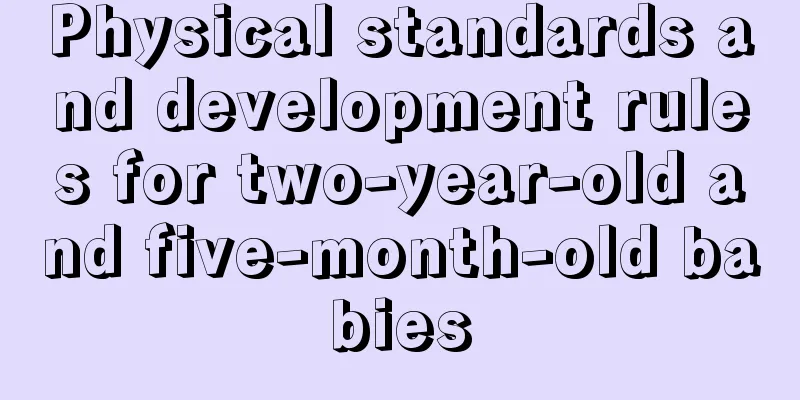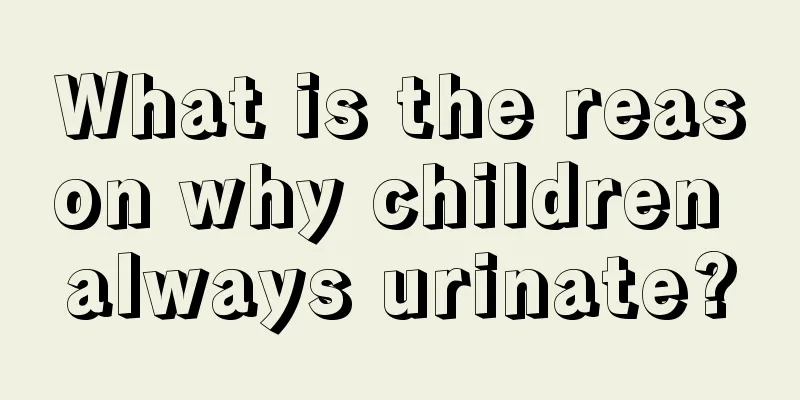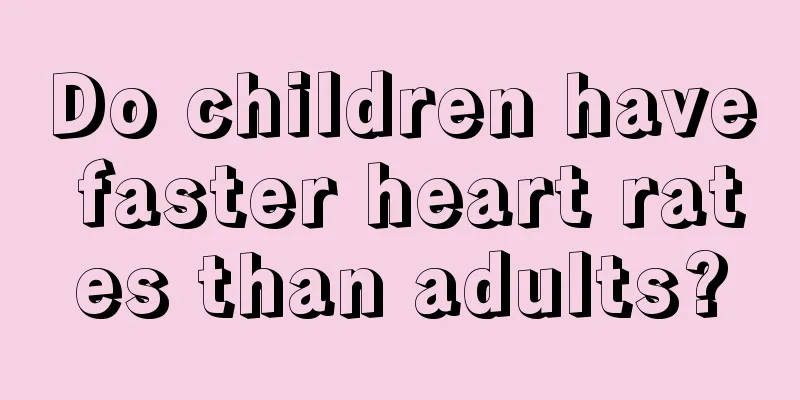What to do if your three-year-old baby has a poor appetite

|
Parents are often worried that their children become picky eaters and don’t like to eat. On the one hand, this is because the child's internal organs are in the process of development. It is also closely related to the child's personal habits. At this time, parents should guide their children to eat more, because children who do not like to eat tend to be thinner, which is not conducive to the healthy growth of children. At the same time, parents should also pay attention to avoiding the habit of picky eating. What should I do if my three-year-old baby has a poor appetite? The stomach and intestines are to a child as soil is to a young tree. He has a bad stomach and cannot absorb any good food. Giving your child a good stomach is equivalent to laying a good nutritional foundation for him! After a baby is born, the most basic requirement is to eat, drink and defecate? Sleeping. And eating and drinking? Salivation is closely related to the digestive system of the stomach and intestines, which is responsible for the digestion, absorption and excretion of food. As long as the newborn is healthy, his gastrointestinal function should also be healthy. But why is it that when they grow up, some children have very strong stomachs and enjoy eating anything, while others easily get stomach upset? A very important reason is that the acquired maintenance methods are different. Even the best stomach and intestines will be damaged if they are not properly cared for. Judging from the child's physiological development characteristics, his digestive system is still immature, the acidity of gastric juice is low, the secretion of various digestive enzymes is small and the activity is low, so his tolerance to food is relatively poor. However, children are in a period of rapid growth and development and require relatively more nutrients, which puts a heavy burden on the gastrointestinal tract and often puts the digestive function under stress. Therefore, at every stage of a child's growth and development, we must pay attention to protecting his stomach and intestines. After the child is 1 year old, already? Able to accept a variety of solid foods. At this time, you can let your child taste a variety of foods so that he can accept a variety of foods smoothly and will not be picky or biased in his eating habits when he grows up. The stomach and intestines are exercised from an early age and are less likely to "go on strike" in the future. At this stage, it is also very important to develop the habit of eating meals on time. Regular diet can provide the stomach and intestines with regular "signals", allowing them to work in an orderly manner every day. After a child is 3 years old, he can eat almost everything that adults can eat, and he has much more choices in snacks and drinks. At this time, be sure to control his snacks. Because our stomach has a rule that the food we eat must be emptied every 3 to 4 hours. If children often eat snacks, there will always be something in their stomach and they will not feel hungry. Then, when it is time to eat, they will naturally have no appetite and will not be able to eat. If this continues for a long time, the child's digestive function will be disrupted. So, don't give your child anything before meals to ensure that his stomach has enough space to receive the food. Parents are also very anxious about some children's picky eating and poor appetite. In addition to providing appropriate guidance in life, they also need to take their children to the hospital for certain examinations to avoid the situation where the children have poor appetite due to organic reasons. In addition, in daily diet, we should also pay attention to improving children's appetite through variety and food diversity. |
<<: What to do if your three-year-old baby has cavities
>>: What to do if your three-year-old baby has diarrhea
Recommend
Standard sitting posture for primary school students to write
What is the correct writing posture for primary s...
What are the main brain-boosting soups for children?
If you want your child to grow up healthier, you ...
Can childhood epilepsy be cured? Professional doctors answer this
If a child suffers from epilepsy, he needs to go ...
What should I do if my 24-month-old child has a fever?
For a woman, after giving birth, she will become ...
What are the symptoms of nephritis in children?
Many friends do not know that nephritis can occur...
What foods can children choose to eat to replenish kidney deficiency
The best time to nourish the kidney is in winter,...
How to treat oral cysts in children
Oral cysts in children are oral mucous gland cyst...
What to do if your child has a hoarse voice and a runny nose
What should I do if my child has a hoarse voice a...
What should I do if my child has a sore throat and a fever?
Children have relatively poor resistance, and whe...
The dangers of eating too much
Generally speaking, the various organs of a baby&...
Treatment of tongue ulcer in 2-year-old baby
If a 2-year-old baby develops tongue ulcers, it w...
What are the things to pay attention to when choosing a cooling patch?
Whenever the seasons change, many people with low...
What should I do if my child likes to hit others?
Children are at the peak stage of development. Du...
What are the symptomatic treatments for pneumonia in children?
In the autumn and winter, there are long queues o...
When is the best time for children to drink milk?
Milk can be said to be something that we all have...









